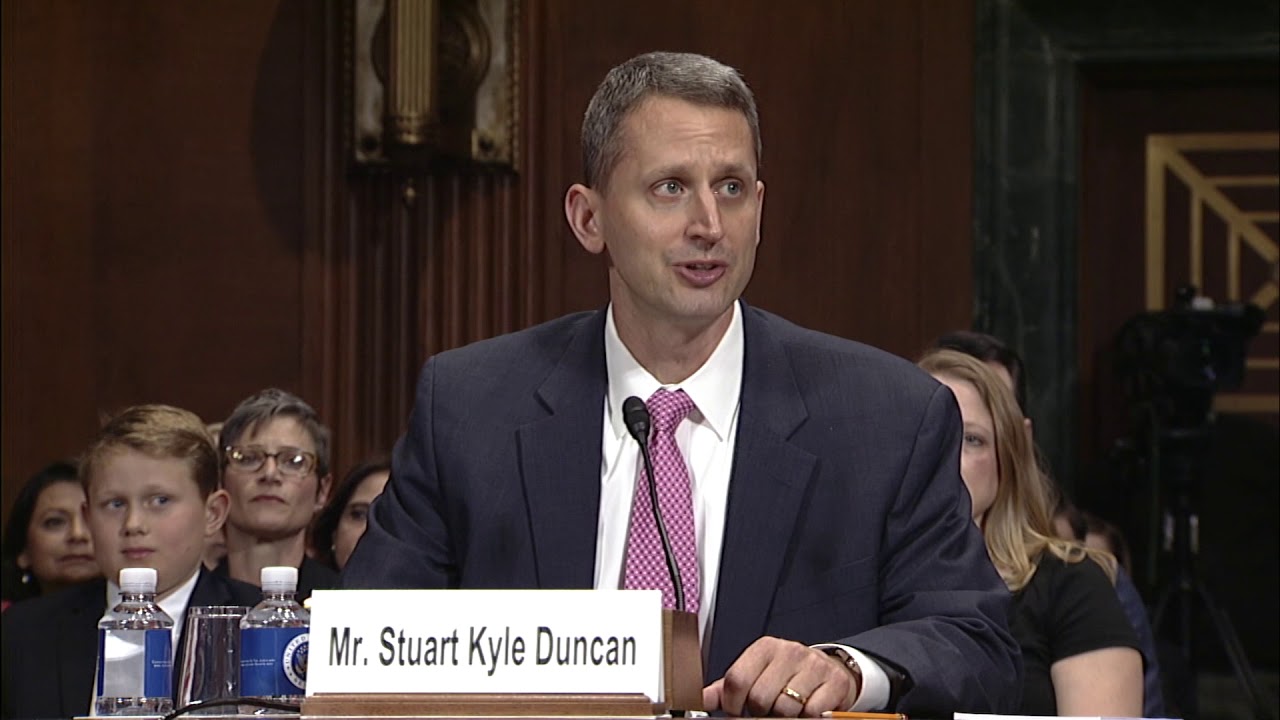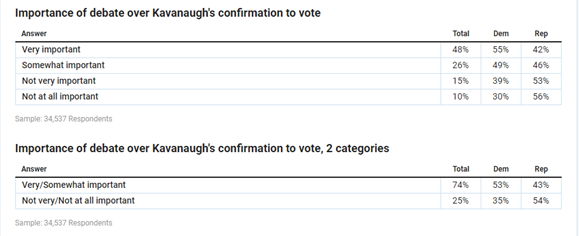Abortion rights, women of color, and LGBTQI+ people are under attack. Pledge to join us in fighting for gender justice.
Senate Judiciary Committee Schedules Votes on Troubling Nominees

 At the end of last year, a number of judicial nominations that had not been voted on by the Senate were sent back to the White House. Following their renomination last week, 17 of these nominees were placed on the agenda for a vote at the Senate Judiciary Committee’s executive business meeting today. Unfortunately, this group of 17 nominees includes several with extremely problematic records on women’s legal rights and protections. For example, Stuart Kyle Duncan, nominated to the U.S. Court of Appeals for the Fifth Circuit, has taken litigation positions supporting the use of religious beliefs to deny women access to birth control, and hostile to LGBTQ individuals and families. Mark R. Norris, nominated to U.S. District Court for the Western District of Tennessee, has spent the last 17 years as a Tennessee legislator trying to make it more difficult for women to access abortion. As a state legislator, Norris also supported a host of bills intended to undermine or simply do away with protections against discrimination on the basis of sexual orientation, and vehemently opposed same-sex marriage. And Matthew Kacsmaryk, nominated to the Northern District of Texas, has criticized key Supreme Court precedents, and objected to legislation and to proposed agency rules that protected against discrimination on the grounds of gender identity and sexual orientation. In addition, the 18 nominees listed on the Committee’s agenda include Thomas Farr, nominated to a seat on the Eastern District of North Carolina, about whose earlier testimony questions have been raised. The NAACP LDF, among others, has called for Farr to be recalled by the Committee for additional questioning.
At the end of last year, a number of judicial nominations that had not been voted on by the Senate were sent back to the White House. Following their renomination last week, 17 of these nominees were placed on the agenda for a vote at the Senate Judiciary Committee’s executive business meeting today. Unfortunately, this group of 17 nominees includes several with extremely problematic records on women’s legal rights and protections. For example, Stuart Kyle Duncan, nominated to the U.S. Court of Appeals for the Fifth Circuit, has taken litigation positions supporting the use of religious beliefs to deny women access to birth control, and hostile to LGBTQ individuals and families. Mark R. Norris, nominated to U.S. District Court for the Western District of Tennessee, has spent the last 17 years as a Tennessee legislator trying to make it more difficult for women to access abortion. As a state legislator, Norris also supported a host of bills intended to undermine or simply do away with protections against discrimination on the basis of sexual orientation, and vehemently opposed same-sex marriage. And Matthew Kacsmaryk, nominated to the Northern District of Texas, has criticized key Supreme Court precedents, and objected to legislation and to proposed agency rules that protected against discrimination on the grounds of gender identity and sexual orientation. In addition, the 18 nominees listed on the Committee’s agenda include Thomas Farr, nominated to a seat on the Eastern District of North Carolina, about whose earlier testimony questions have been raised. The NAACP LDF, among others, has called for Farr to be recalled by the Committee for additional questioning.
While votes on these nominees have been delayed until next week, there is reason to argue that the delay should actually be far longer. Many of the 17 nominees have records that warrant substantive – and significant — debate. And when these nominees are viewed in the context of Trump’s judicial nominees overall, it’s clear that there is a pattern: many of Trump’s nominees would seek to curtail women’s access to reproductive health care, LGBTQ rights, and other civil rights. The evaluation of nominees to federal courts in the Senate Judiciary Committee is a process that is critically important to the lives and futures of women, and the Committee vote is only one step away from a final vote in the Senate to confirm these nominees. The Committee should not rush these nominees to lifetime positions on the federal bench through that process.






